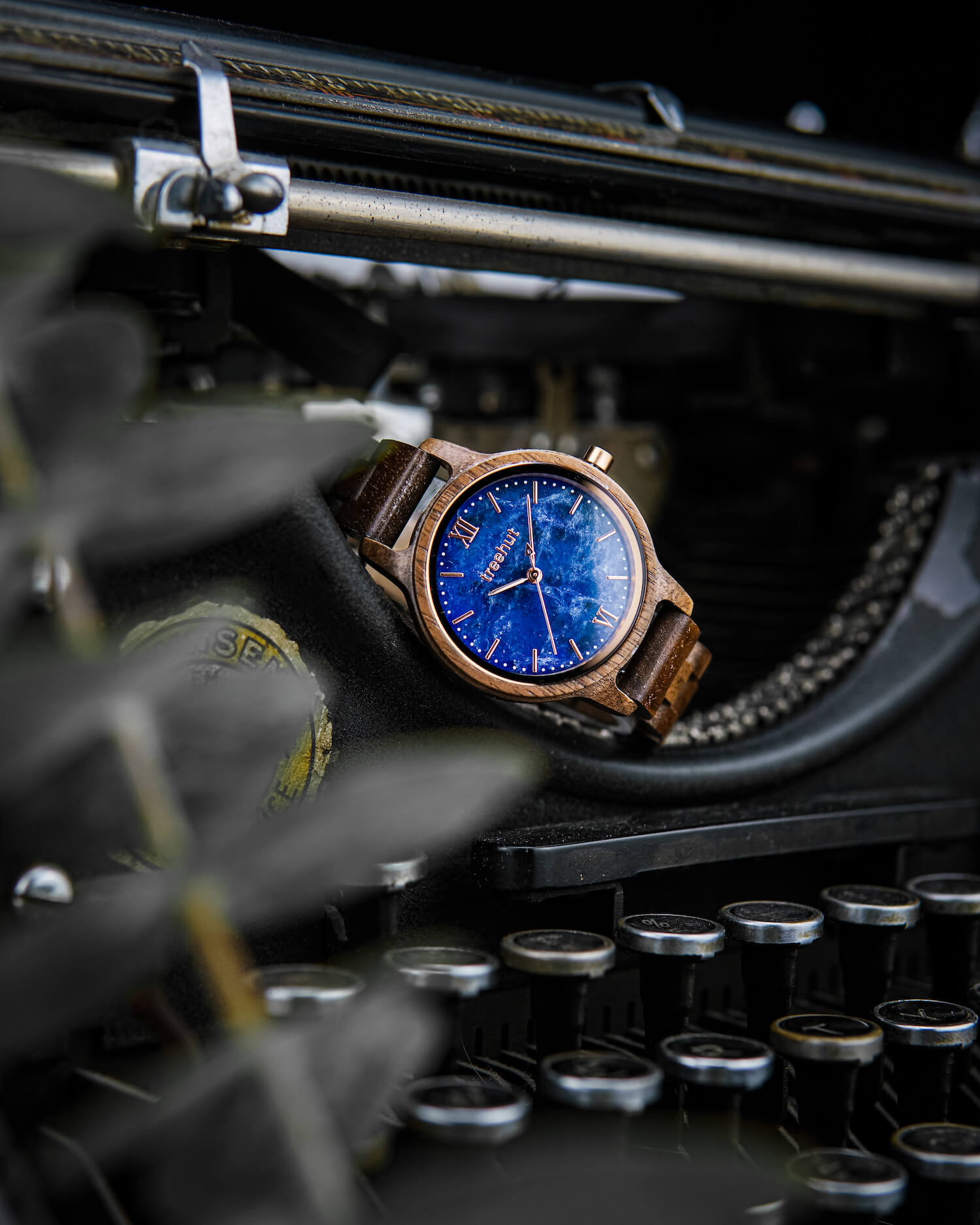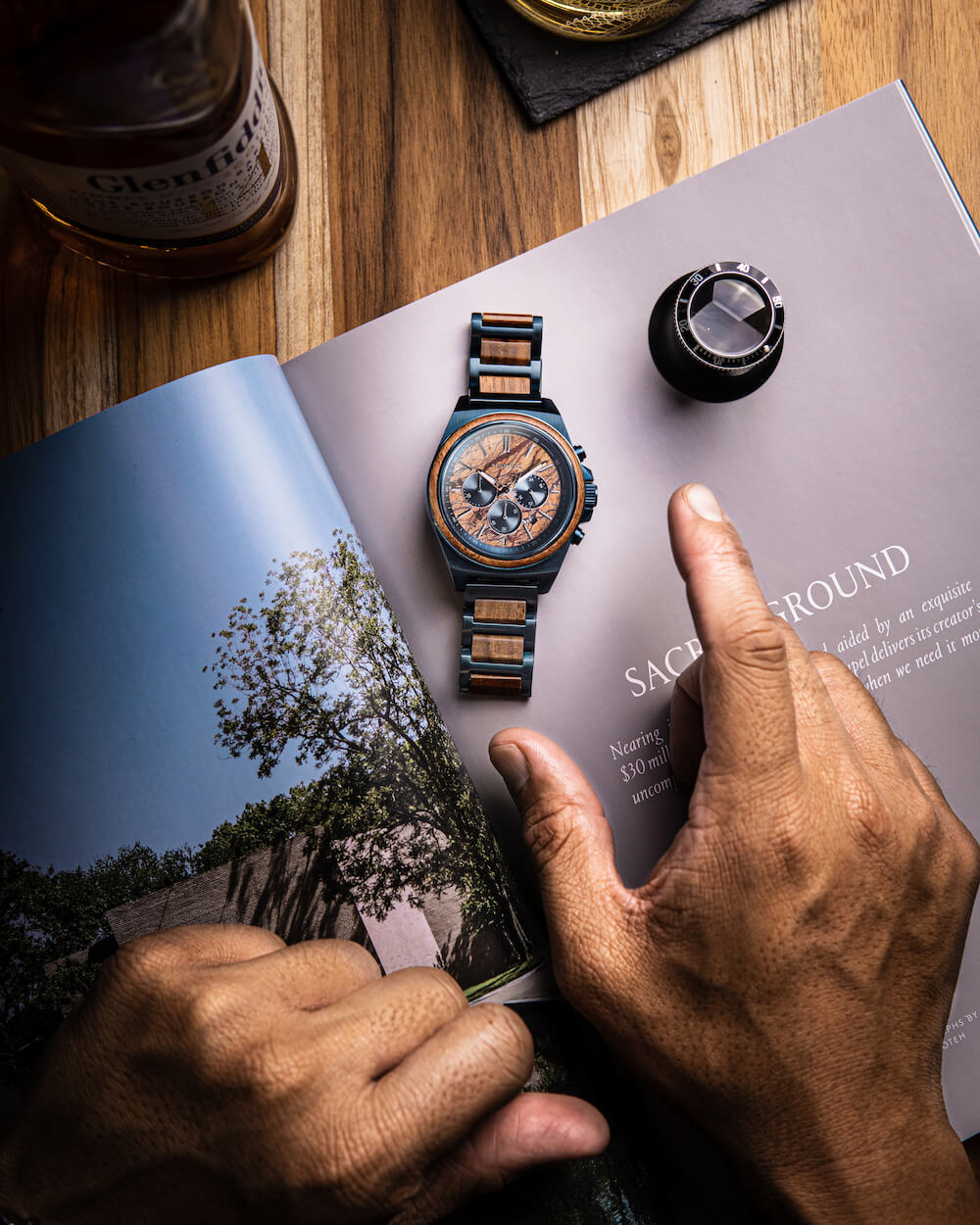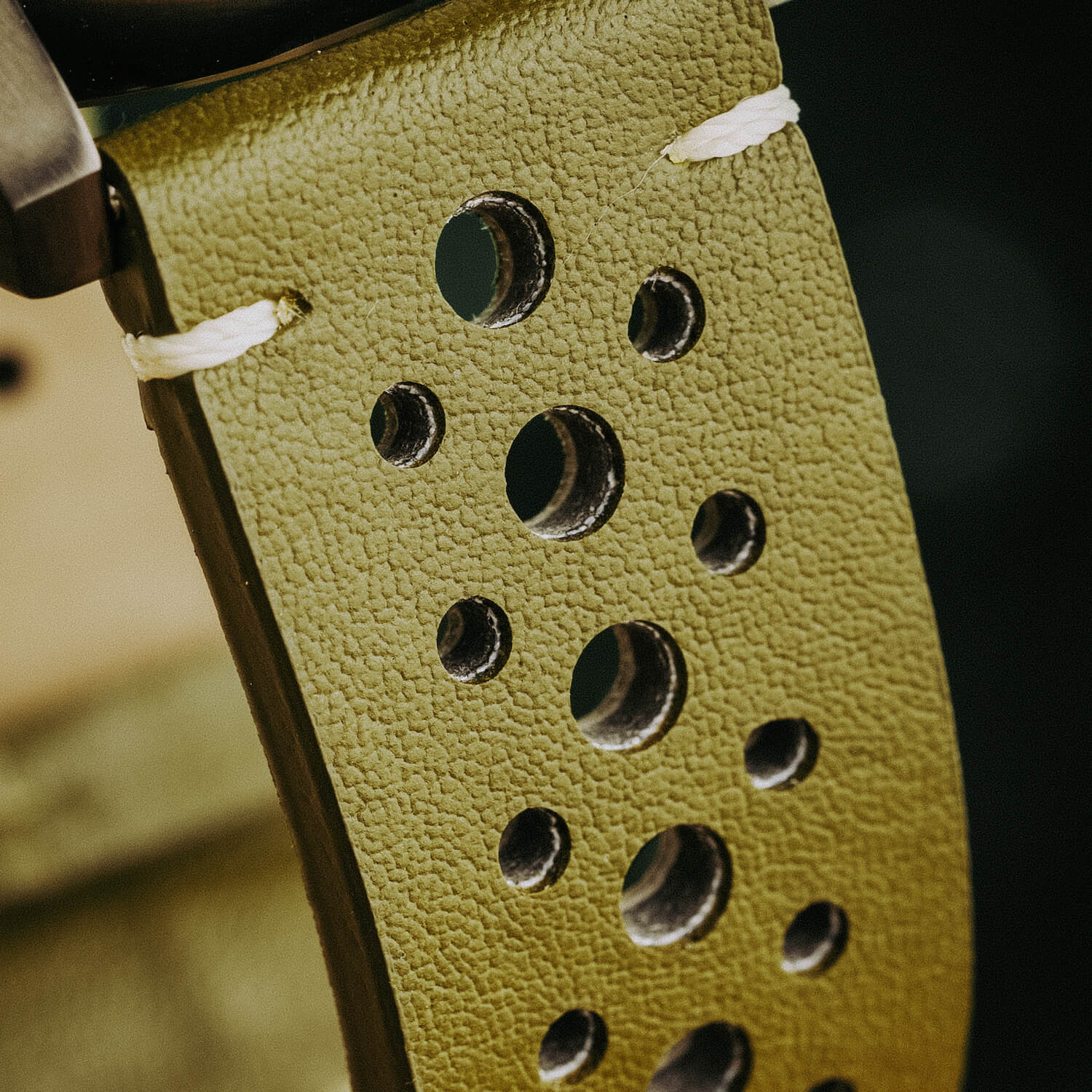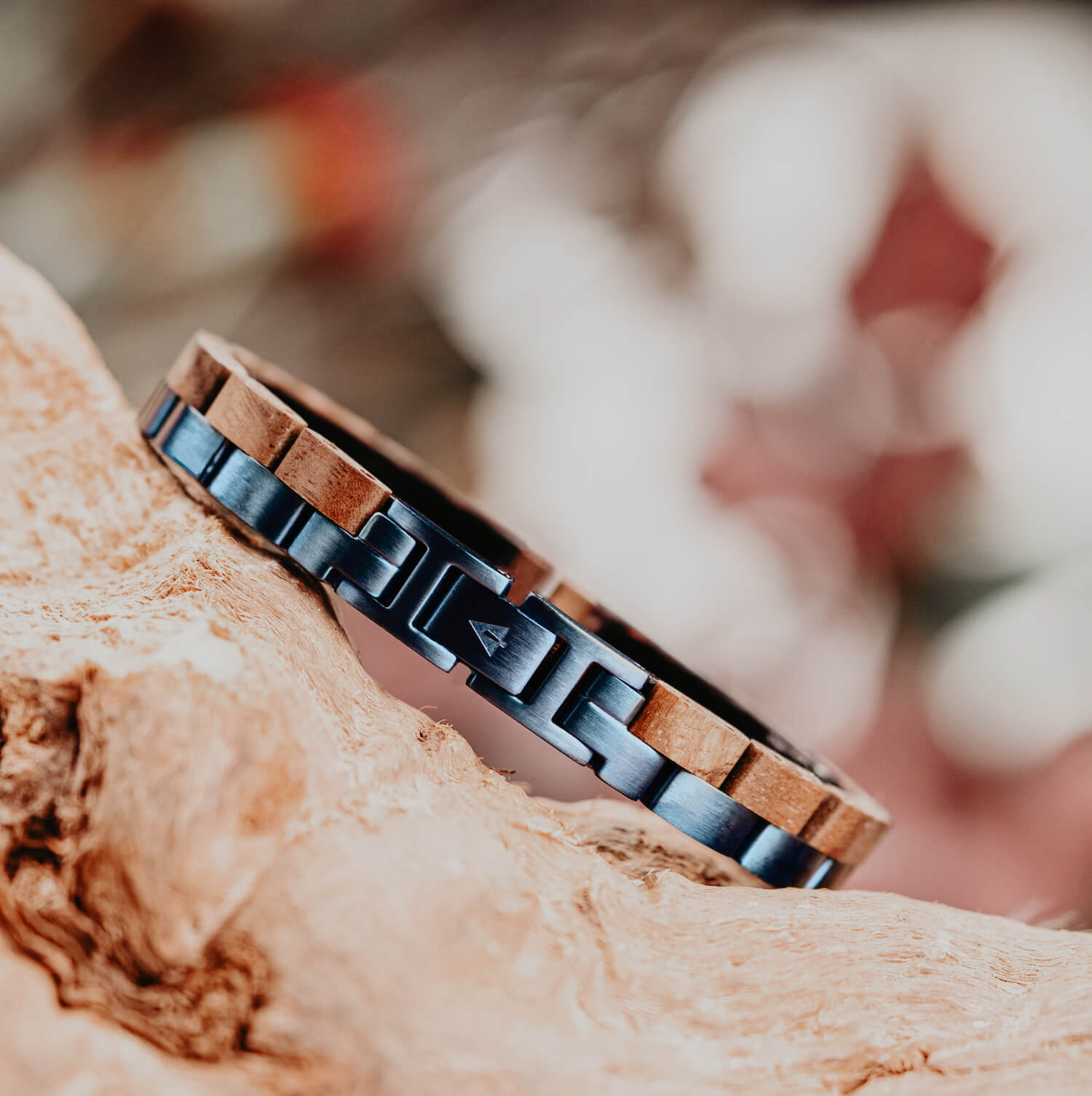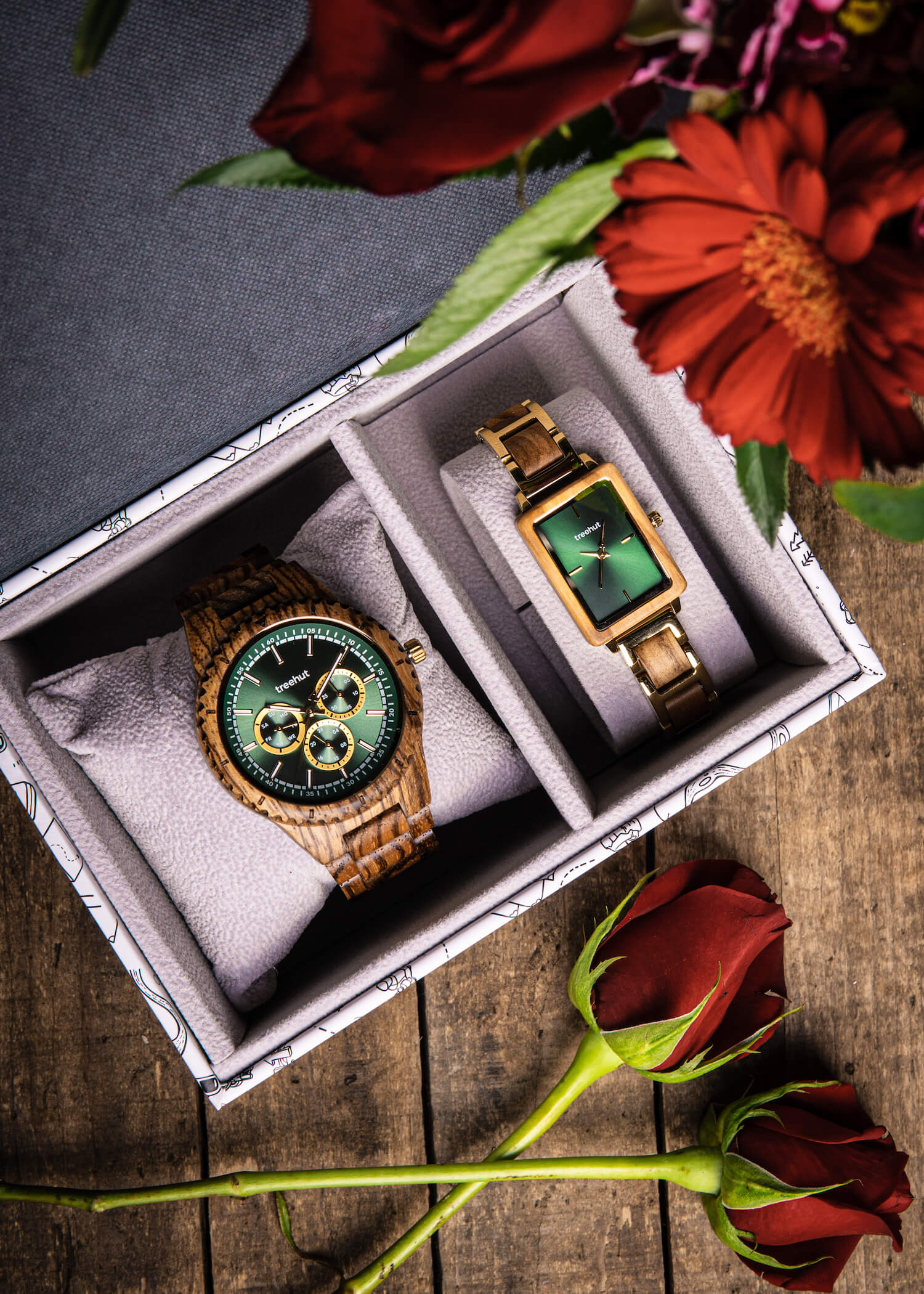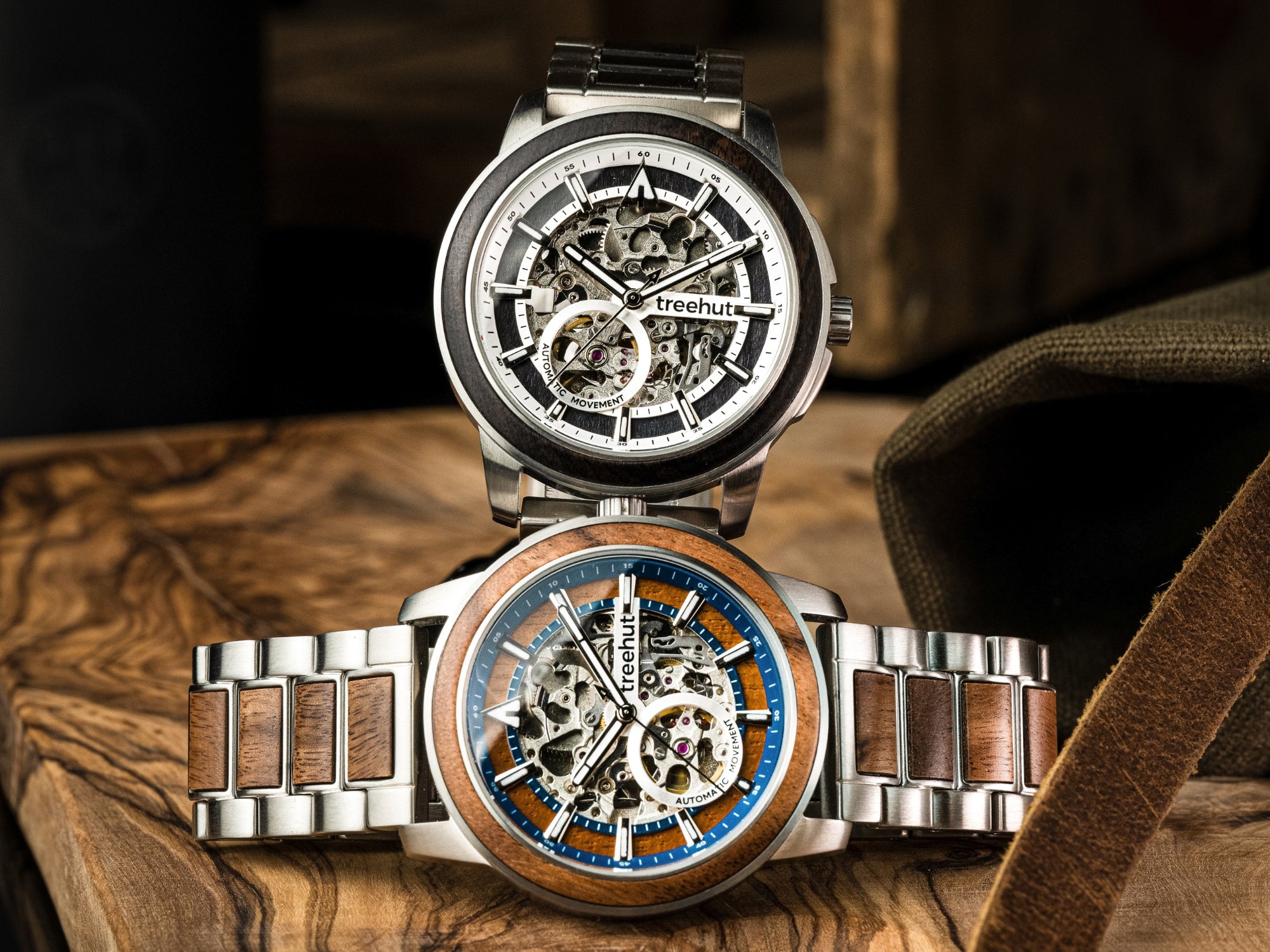Watches have come a long way from just being simple tools of telling time. Today, men’s watches are available in all kinds of styles and designs, making it difficult to choose one unless you know what you want from your watch. For instance, are automatic watches worth paying the top dollar? Are quartz watches really the most reliable? We have compiled a guide on the differences between a quartz vs. automatic watch to help you pick your next timepiece.
Key Differences Between Quartz & Automatic Watches
|
Feature |
Quartz Watches |
Automatic Watches |
|
Power Source |
Battery |
Wearer’s wrist movement |
|
Accuracy |
More accurate (± seconds per month) |
Less accurate (± seconds per day) |
|
Price |
Generally more affordable |
Usually more expensive due to craftsmanship |
|
Durability |
More durable and less susceptible to damage |
Less durable and more likely to get damaged if not taken care of properly |
|
Maintenance |
Low maintenance; only the batteries need to be replaced |
Requires frequent servicing |
Read More: The Ultimate Guide to Watch Movements and How They Work
What Is a Quartz Watch?

The famous Japanese watch brand Seiko pioneered the quartz movement in the 20th century. It quickly became a popular alternative to the mechanical movement due to its affordable price point and astonishing accuracy. A quartz watch is powered by a battery, which sends an electric current through a piece of quartz crystal (hence the name). This causes it to vibrate 32,768 times each second, which, in turn, drives the motor and moves the watch’s hands.
Pros of Quartz Watches

-
Highly Accurate
The biggest difference between a quartz vs. automatic watch is their accuracy — the former is, hands down, a much more reliable timekeeper. Due to the fixed vibration frequency of the quartz crystal, the watch keeps running even when you are not wearing it.
-
Durable
Quartz watches are generally more durable; they have fewer moving parts, which makes them less prone to damage or frequent repairs. In addition, their batteries usually last for at least 1-3 years (higher-end timepieces can last even longer).
-
Low Maintenance
Another factor differentiating a quartz vs. automatic watch is their need for maintenance. Quartz watches require much less upkeep; you only need to change the battery when it runs out. Apart from that, they are pretty low maintenance.
Cons of Quartz Watches

-
Environmental Impact
The production of batteries can contribute to environmental pollution, especially since they can leak toxic chemicals, so you would need to take extra care when disposing of them.
-
Lack of Prestige
When comparing quartz vs. automatic watch, some people consider the former less prestigious or luxurious, which can affect brand perception and, as a result, resale value.
-
Compromise on Craftsmanship
Quartz watches do not possess the artistry and mechanics of automatic watches, such as an open-heart dial or the smooth movement of a sweeping second hand, which may make them less visually appealing to some.
What Is an Automatic Watch?

Automatic watches, also known as self-winding watches, have been around for much longer than their quartz counterparts. They date back to the 18th century, but did not become popular until the early 20th century. They are quite similar to mechanical watches, but the core difference is that they are powered by the motion of your wrist. With every movement, the rotor inside rotates, winding the mainspring, which keeps the watch ticking. This eliminates the need for daily manual winding or a battery.
Pros of Automatic Watches

-
No Batteries Required
When comparing a quartz vs. automatic watch, the latter has the advantage of not needing any batteries. The self-winding mechanism means you do not have to worry about replacing its battery, which saves time and effort. Additionally, this also makes it a more sustainable choice – especially if you are buying a wooden automatic watch. Eco-friendly options like ocean plastic waste watches or cactus leather watches are also available at Treehut.
-
Craftsmanship
Automatic watches are highly valued for their intricate craftsmanship and classic design. You can watch the movement in action through the exposed case back, plus the sweeping second hand makes the timepiece even more sophisticated.
-
Heirloom Pieces
Automatic watches can last for generations, making them great heirloom pieces. Their enduring quality and timeless appeal make them a symbol of family heritage. Moreover, they can also appreciate in value over time.
Cons of Automatic Watches

-
Power Reserve Limitations
If you compare a quartz vs. automatic watch in terms of convenience, it must be noted that an automatic timepiece requires regular winding in order to function. If you do not wear it for a few days, it can stop working altogether since it typically has a power reserve of about 24-48 hours. This can be highly inconvenient, especially if you are in a rush.
-
Environmentally Sensitive
An automatic watch can be quite vulnerable to external elements, like temperature, magnetism, or even its position on your wrist. This makes it potentially less durable in the comparison between a quartz vs. automatic watch.
-
Bulky Design
An automatic watch can also be slightly thicker and weightier due to the various components inside. This can make it a little uncomfortable to wear, especially if you are looking for an everyday accessory.
Read More: Chronograph vs. Automatic Watches: Which Watch Is Right for You?
Quartz or Automatic: Which Watch to Choose?
There is no clear-cut winner when choosing between a quartz vs. automatic watch. It all comes down to your personal preferences and lifestyle. If you are looking for an everyday watch that you can wear anywhere from work to formal occasions, quartz watches are the way to go — especially if you want carefree maintenance. If you tend to spend most of your time outdoors, Treehut’s wooden watches are an especially great choice: they are lightweight, reliable, and quite tough. Not to mention, quartz watches are much easier on the wallet, as they can be mass-produced more efficiently.
On the other hand, automatic watches come with many bragging rights. With their long history and traditional craftsmanship, they can be something of a status symbol. Hence, if you are choosing between a quartz vs. automatic watch, the latter is a better option if you are a watch collector or just looking to add a luxury piece to your collection.

